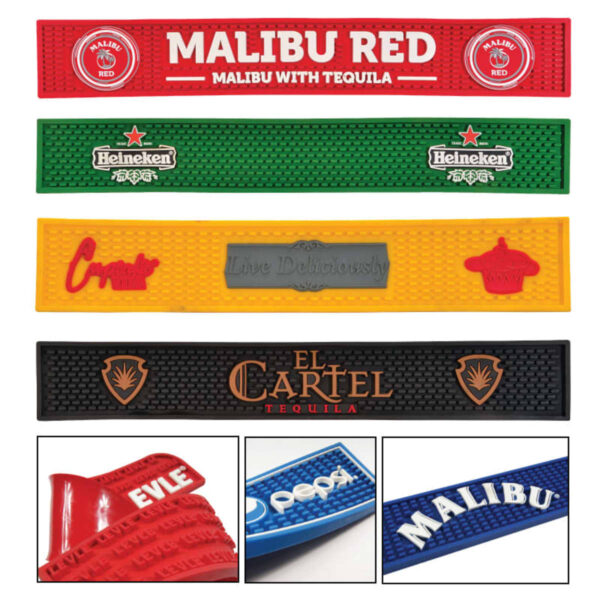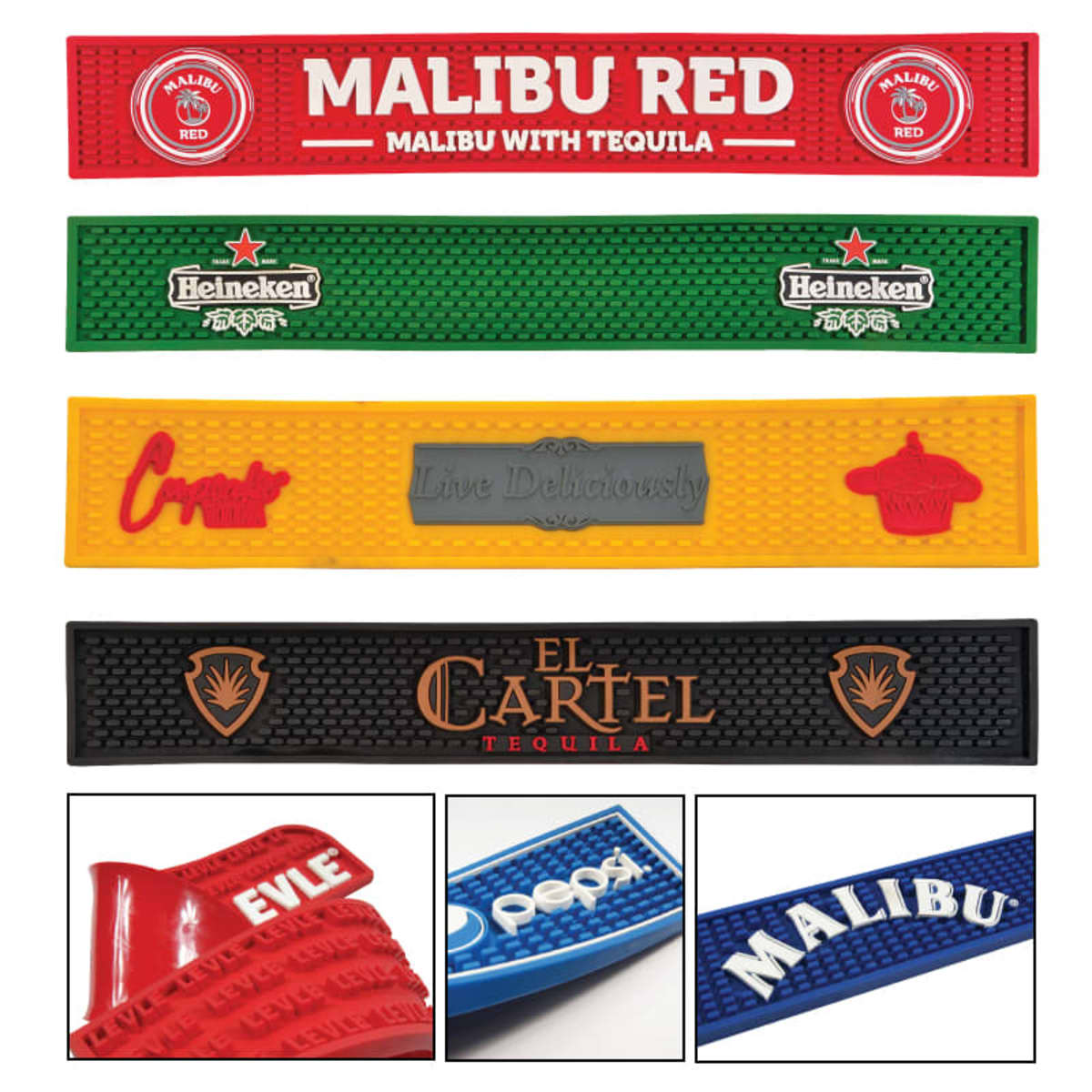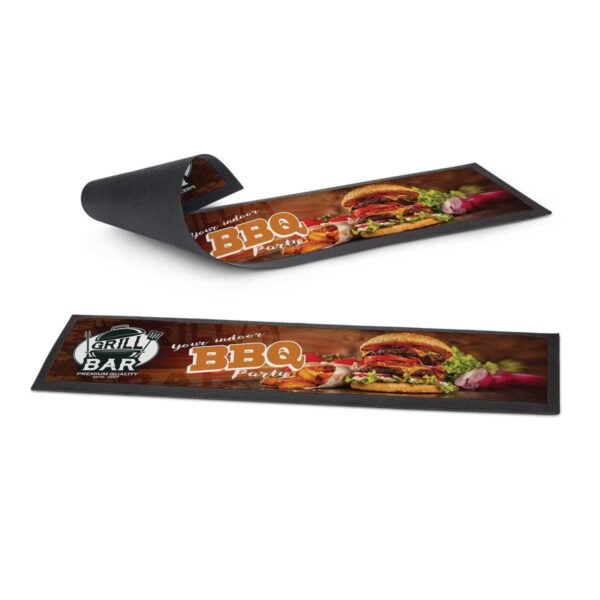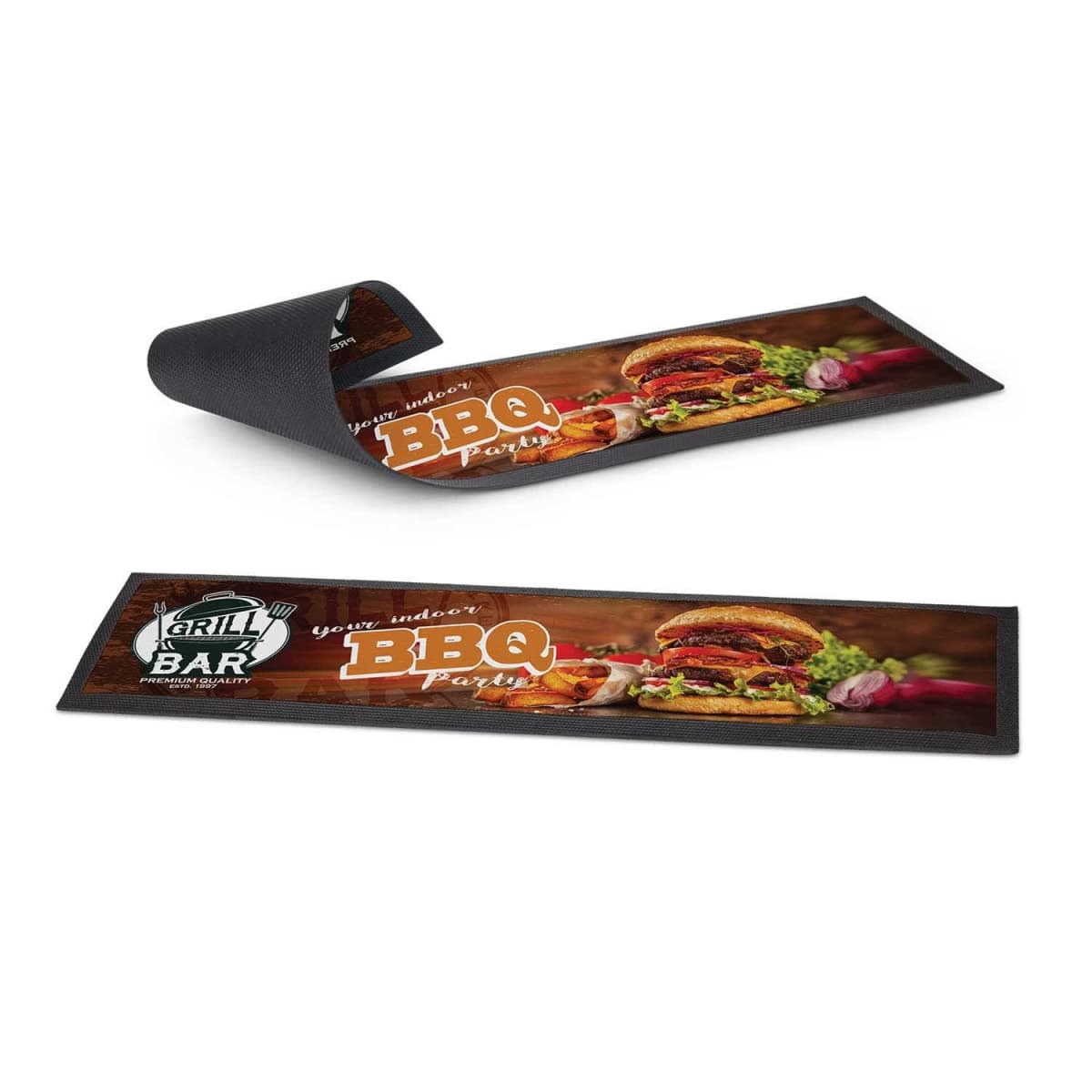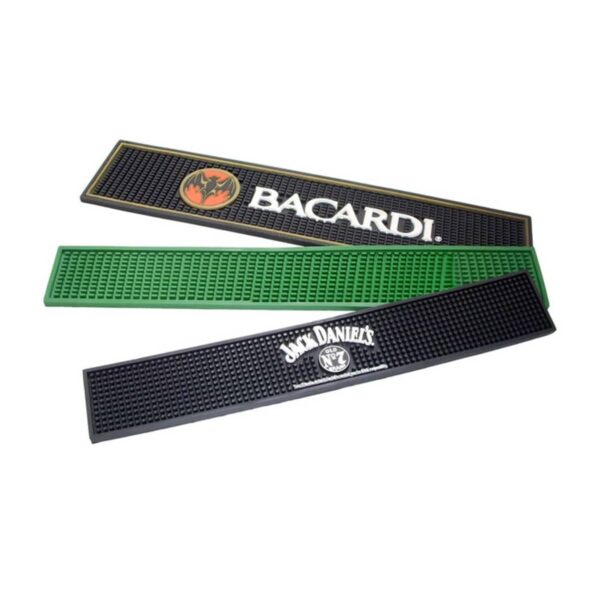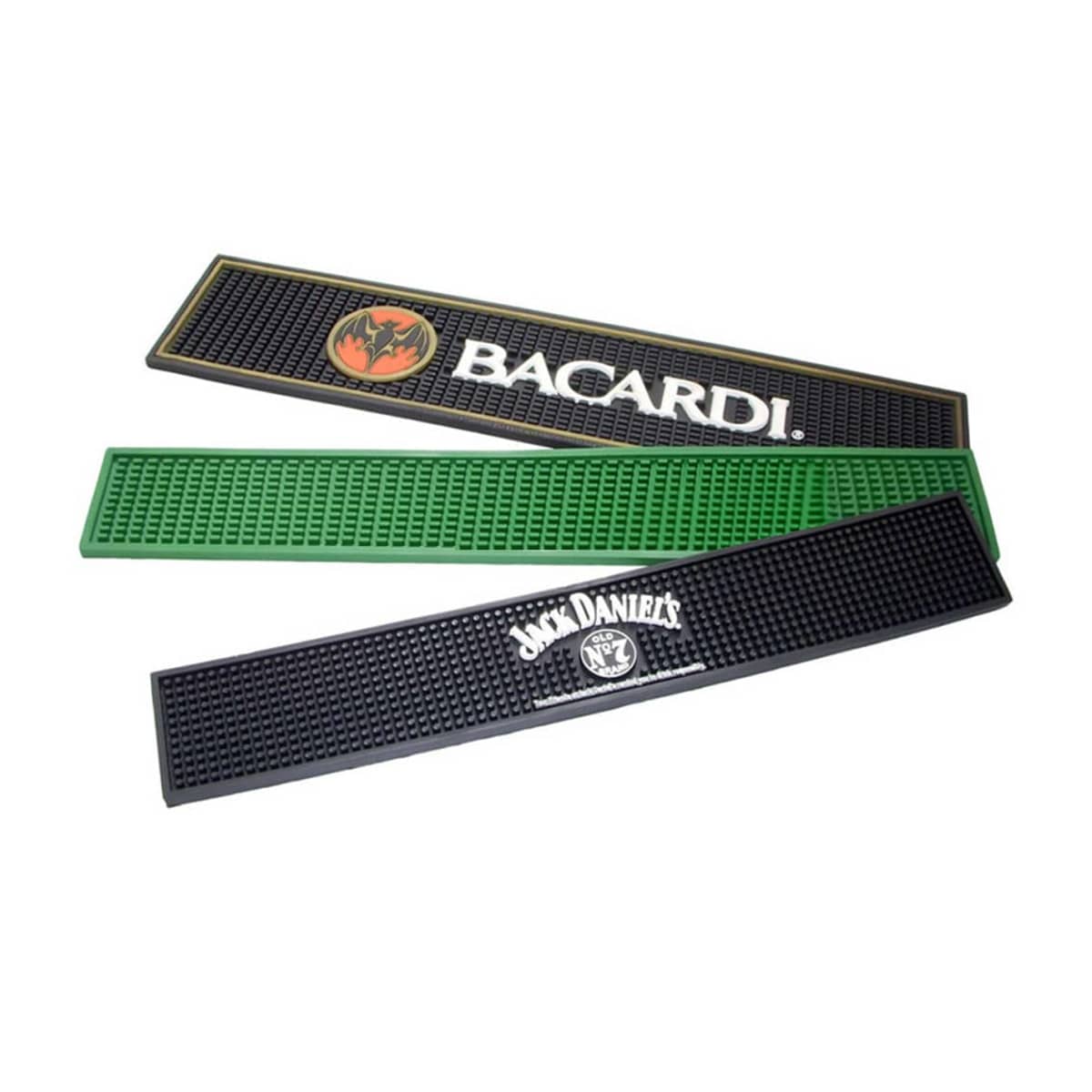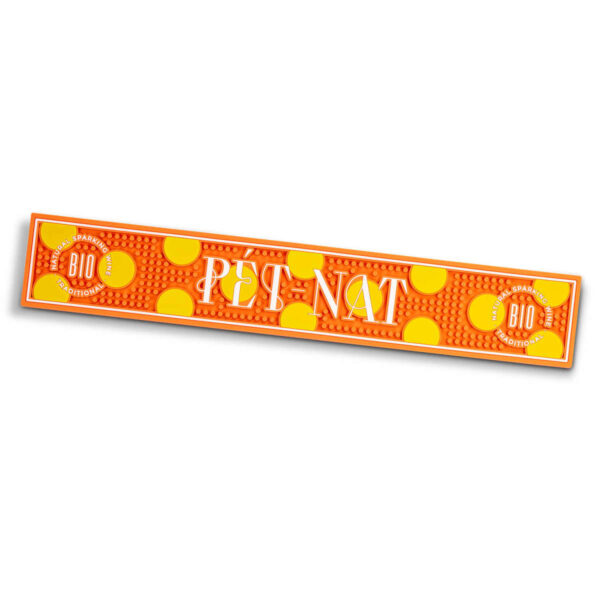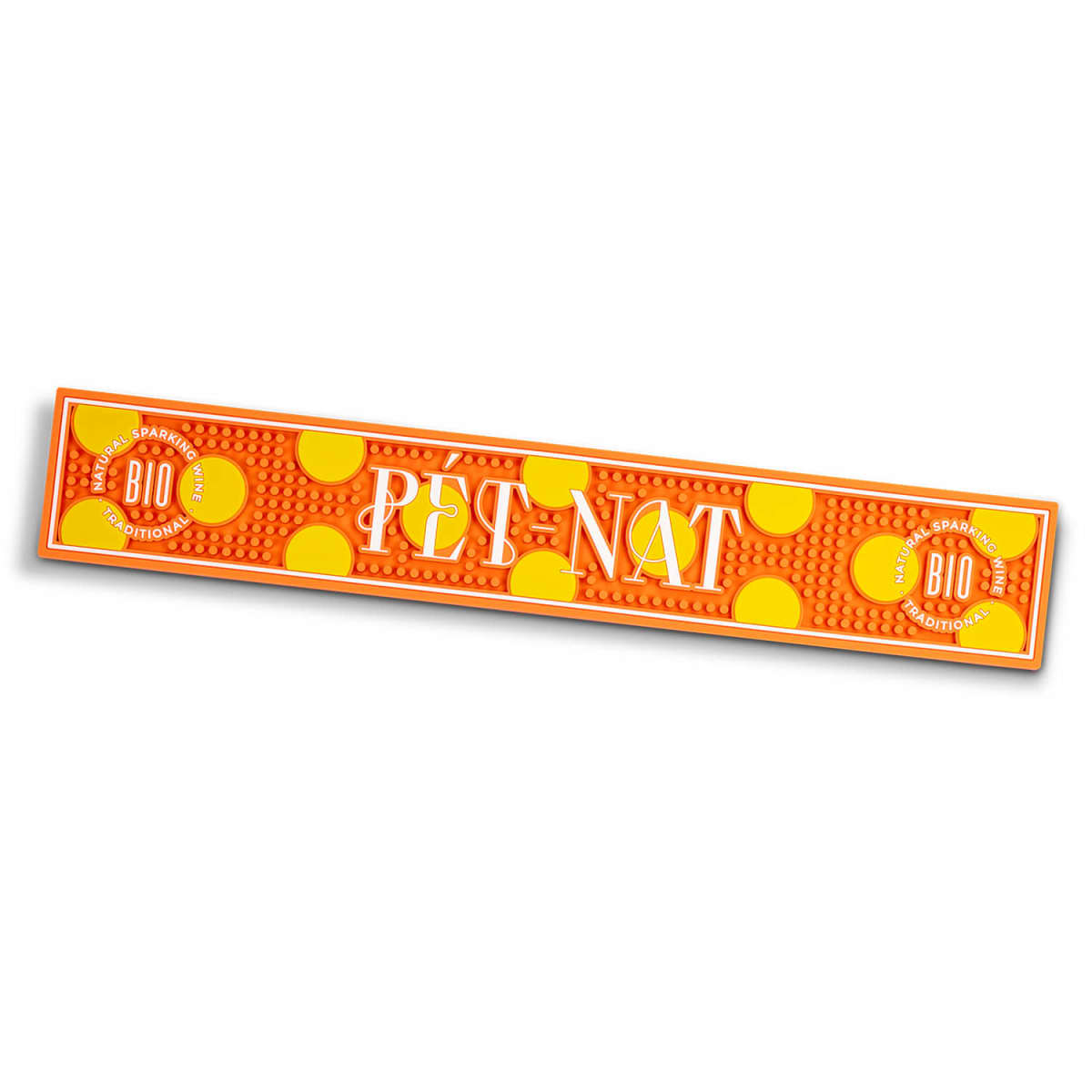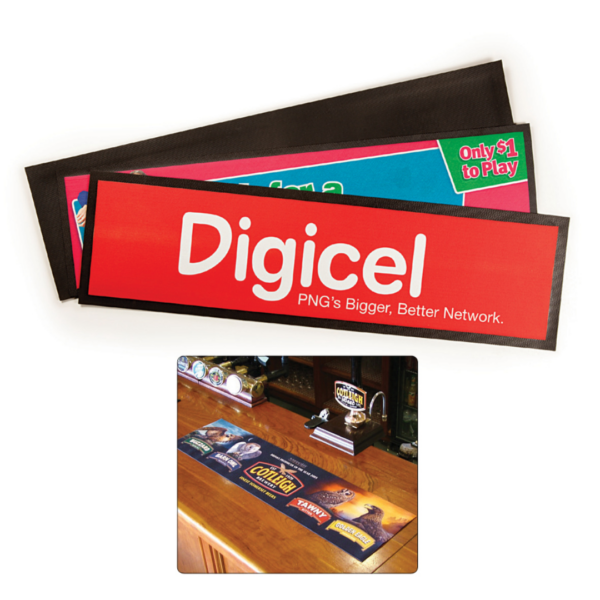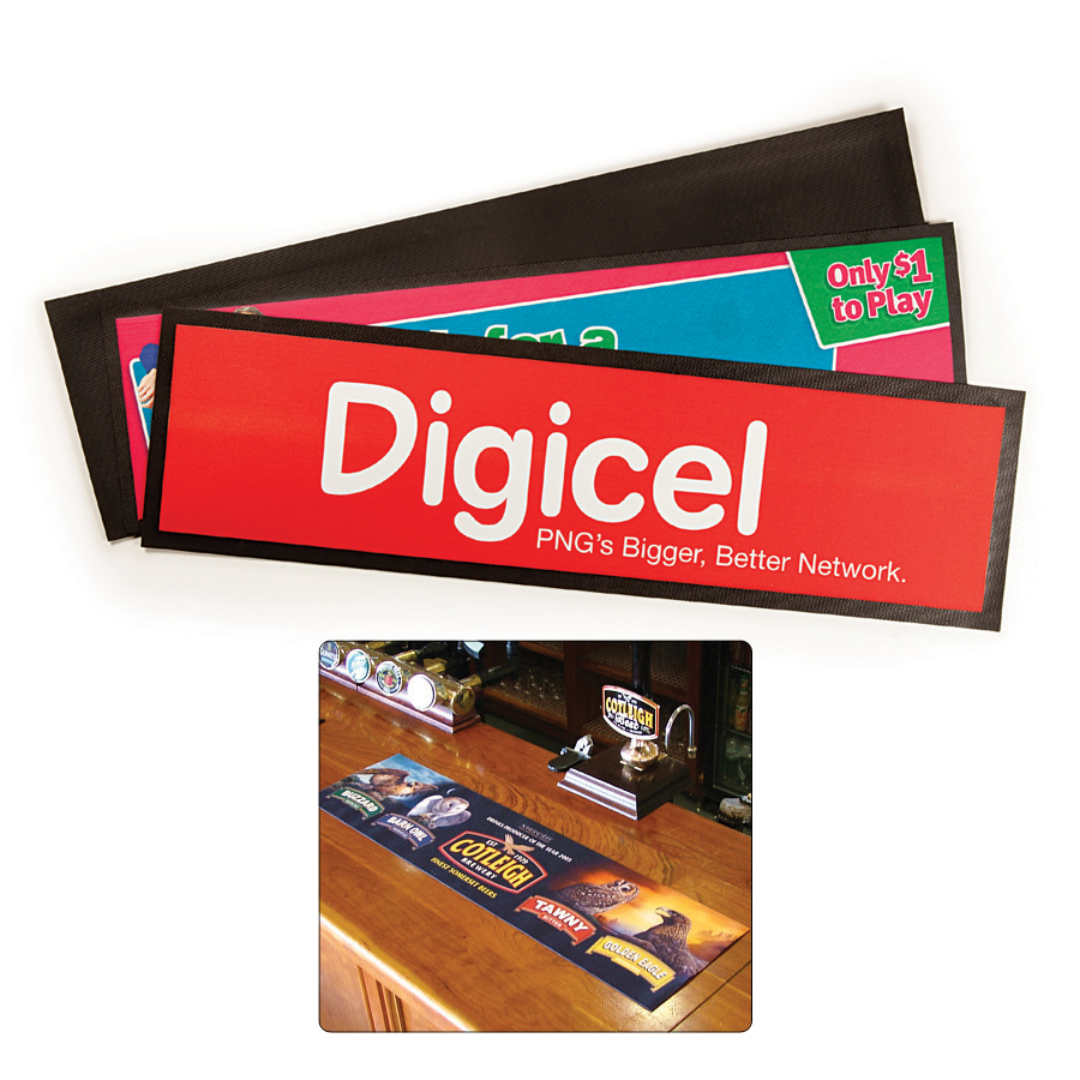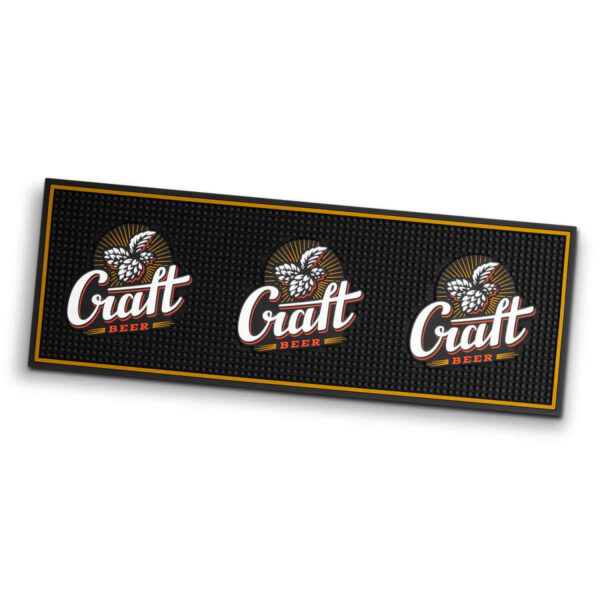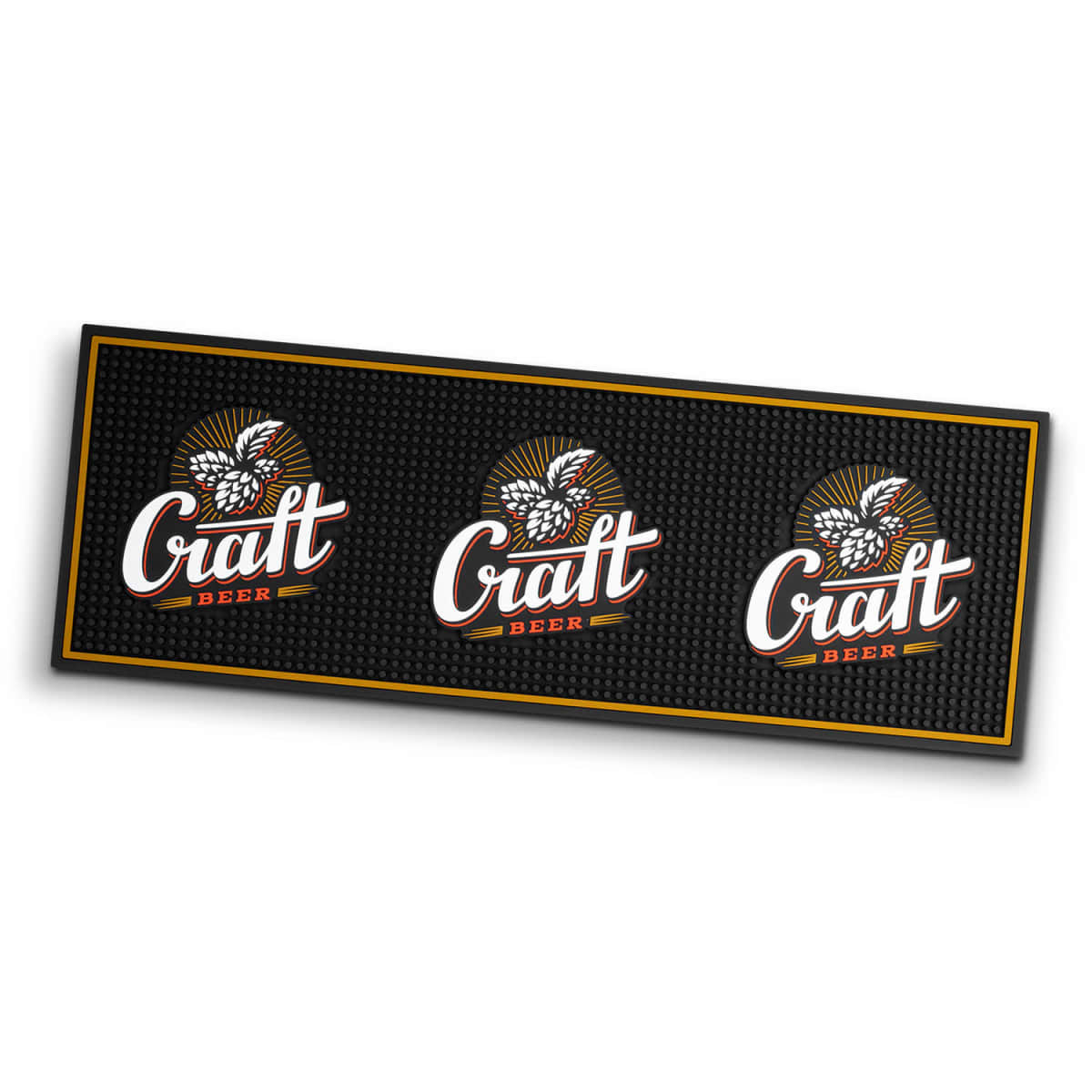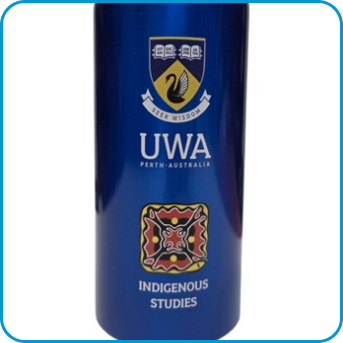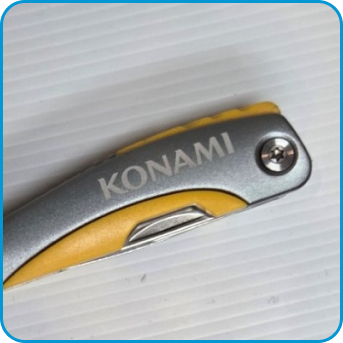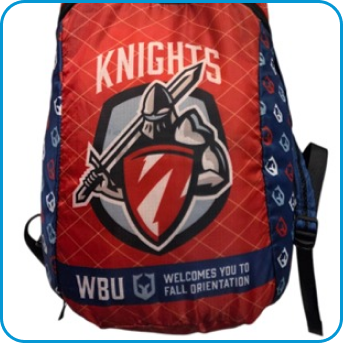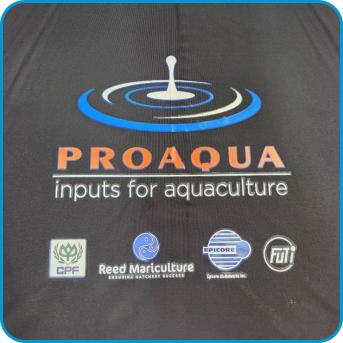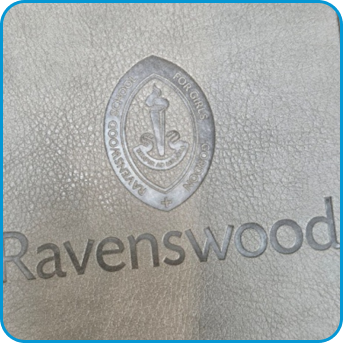Why Custom Bar Mats Are an Essential Promotional Tool
A great promotional product is practical, long-lasting, and constantly in use, making bar mats a wise investment for hospitality businesses and beverage brands. A branded bar mat stays displayed at service counters, ensuring high visibility with every order.
These mats protect countertops from spills and drips and serve as mini advertising billboards, reinforcing brand loyalty and product recognition with every customer interaction. Whether placed on a bar, restaurant counter, or pop-up event stall, a well-designed bar mat is a subtle but powerful branding tool.
What Are Promotional Bar Mats?
Like a mouse mat, a bar mat functions as a tabletop counter protector. These bar mats absorb spills, prevent glass slippage, and clean service areas. Available in multiple materials and finishes, these mats offer a high-traction, easy-to-clean surface, displaying bold branding and logos. Key features include:
- Rubber Drip Mats – Heavy-duty, slip-resistant mats with raised edges to catch liquid spills. We recommend for pubs, clubs, and high-traffic venues.
- PVC & Vinyl Bar Runners – Flexible, lightweight mats with custom full-colour printing. These lower priced options are ideal for temporary promotions, pop-up events, and brand activations.
- Fabric-Topped Bar Mats – Soft, absorbent mats with a rubber backing for grip, commonly used in restaurants, lounges, and premium beverage promotions.
We can also create:
- Custom Shaped Bar Mats – Unique die-cut designs allow businesses to create distinctive branding with eye-catching shapes and logos.
Durable, washable, and designed for long-term use, these mats perfectly blend function and promotional impact.
Who Should Use Custom Bar Mats for Promotions?
- Bars, Pubs & Nightclubs – Reinforce branding at service counters, beer taps, and drink stations.
- Hotels & Resorts – Add a premium, branded touch to lounges, poolside bars, and lobby refreshment stations.
- Corporate Events & Functions – Feature custom logos and messaging at brand activations, trade shows, and networking events.
- Cafés & Restaurants – Keep counters clean while subtly promoting house drinks, special offers, or partnerships.
- Sporting Clubs & Entertainment Venues – Use bar mats for sponsorship branding at stadium bars and hospitality suites.
- Retail Promotions & Liquor Stores
Because bar mats are highly visible and used daily, they provide long-term brand exposure in high-traffic hospitality environments.
Case Study: Brisbane Hotel Enhances Bar Branding with Custom Bar Mats
A Brisbane-based hotel and cocktail lounge wanted to create a more branded and cohesive bar experience. Working with Cubic Promote, we supplied them with a bar mat that was:
- A dramatic design with a full-colour print
- Slip rubber backing
- Absorbent surface
The Outcome
The new bar mats elevated the overall aesthetic of the lounge, creating a premium and branded service experience for guests. Customers took notice of the sleek, branded design, leading to increased social media engagement, as guests frequently tagged the venue in their drink photos. The bar mats’ success meant the hotel later expanded its custom branding efforts with custom coasters and glassware.
Print & Brand Options for Bar Mats
Bar mats offer multiple branding opportunities, allowing businesses to display logos, taglines, or promotional graphics in bold, high-contrast designs. Popular branding methods include:
- Full-Colour Sublimation Printing – Ideal for fabric-topped bar mats, offering rich, detailed artwork with vibrant colours.
- Screen Printing – Cheap, easy way to print single-coloured designs
- Embossed & Raised Logo Designs – Available for rubber mats, creating a premium, textured branding effect.
We print your logo or graphics. Alternatively, you can use our design services, which start at $35 an hour.
Two Smart Ways to Use Custom Bar Mats in Promotions
- Themed Bar Activations & Seasonal Promotions – Use custom bar mats to promote limited-time drinks, special events, or sponsorship tie-ins.
- Branded Merchandise for Retail & Hospitality Partners – Offer co-branded bar mats to partner venues and distributors, ensuring ongoing brand visibility at service counters.
Australia-Wide Delivery for Bulk Bar Mat Orders
We supply Australia-wide.
With bulk shipping options and secure packaging, your branded bar mats arrive ready for immediate use in hospitality venues, events, and promotional campaigns. If you’re looking for an alternative, be sure to check out the variety of our personalised drink coasters as well.
How to Order Custom Bar Mats in Bulk
- Select your preferred bar mat size, material, and branding method.
- Send us your logo or work with our in-house design team for a custom look.
- Approve the digital proof before production begins.
- Receive your order within 1-2 weeks, shipped anywhere in Australia.
Prices exclude GST.
Frequently Asked Questions
What is the minimum order quantity?
Most bar mats start at 25 units per order, depending on the style.
Are these bar mats water-resistant?
Yes! Our mats are designed to absorb spills and prevent liquid damage.
Can I order different designs in one bulk order?
Yes! We offer multiple designs and branding variations within the same order.
Do you price match?
Yes! We guarantee the best bulk pricing on custom bar mats.
Order Custom Bar Mats Today
Contact us today for the best bulk pricing on custom bar mats.


